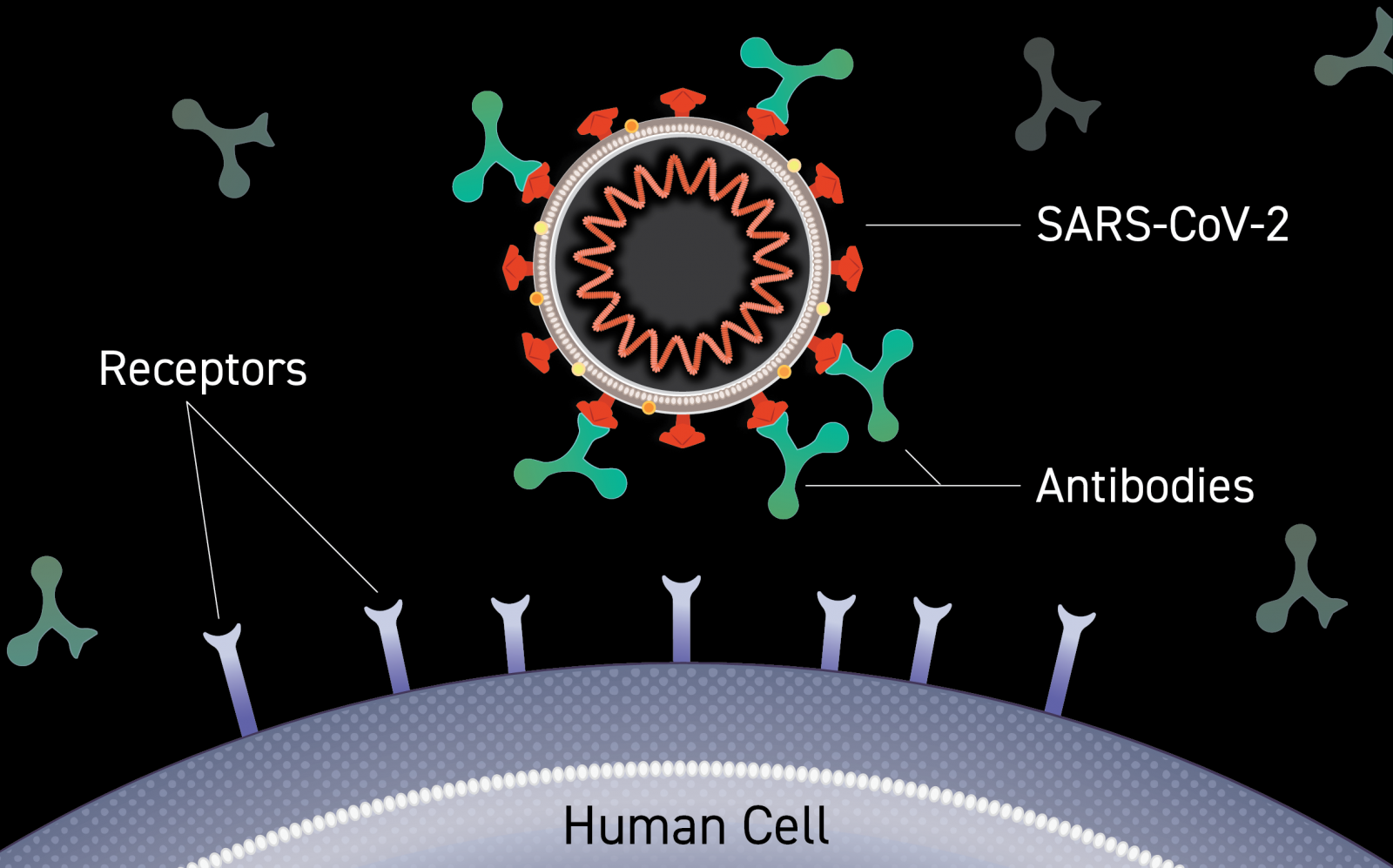BREAKING! COVID-19 Antibodies: Study Confirms That SARS-CoV-2 Antibodies Declines Fourfold Within 30 to 90 days From Symptoms Onset
Source: COVID-19 Antibodies Aug 11, 2020 4 years, 8 months, 2 weeks, 1 day, 2 hours, 5 minutes ago
COVID-19 Antibodies: A new detailed study by researchers from University of Washington shows that most SARS-CoV-2 antibodies last for about 3 months on the average with the neutralizing antibodies falling fourfold from 30 to 90 days from symptoms onset. However the effectiveness of these antibodies has not been validated as time progresses.
 Credit: Lisa Donohue, CoVPN
Credit: Lisa Donohue, CoVPN
Typically most people infected with SARS-CoV-2 coronavirus severe develop binding antibodies against viral proteins over a few weeks. The serum dilution required to inhibit viral infection by half is called NT50 and is in the range of 100 to 200 within about a month of symptom onset. In some cases, the titers are undetectable, while in others, they may be over 10,000.
The new research by scientists from the Fred Hutchinson Cancer Research Center and the University of Washington deals with the changes in neutralizing antibodies in the following months after symptoms onset.
Viral infections are typically characterized by a short sharp rise in neutralizing antibody titer, followed by a decline to a stable elevated level for years, or even decades, showing the persistence of specific plasma and memory cells.
The study by University of Washington focused on the levels of antibodies in patients who have recovered from COVID-19 disease.
Past research shows that antibodies against the spike protein of the virus fall several-fold from a peak to a few weeks after the onset of symptoms. At this time, the antibody response follows the same trend as with other acute viral infections.
The study team showed that the neutralizing antibodies fall fourfold from 30 to 90 days from symptom onset. At the same time, there is a decrease in titer of spike-binding antibodies and those which bind the receptor-binding domain (RBD). However, the level of neutralizing antibodies remains substantial at 3-4 months from infection.
The research findings were published on a preprint server.
https://www.medrxiv.org/content/10.1101/2020.08.06.20169367v1
The research included 34 individuals, of which five were symptomatic and hospitalized, 22 had milder symptoms, while seven were asymptomatic. This cohort had more females than males. The researchers used spike-pseudotyped particles, measuring neutralizing antibody titers over time.
Most of the time, detectable neutralizing antibodies were found at one month from the first symptom, with NT50 over 20. They found a significant decline in the titer over 30 to 60 days, and past 90 days, the median neutralizing titer was four times less than at 30 days but still at detectable levels. Those patients who had required hospitalization had higher antibody levels early in their convalescence, at both 30 and 60 days.
However after this period, from 30 to past 90 days, there was an 18-fold decrease in the neutralizing titer for sympt
omatic patients who were in hospital, but a threefold fall in the NT50 for those who were not hospitalized.
Thus, after 90 days from symptom onset, the neutralization titer was no longer different between patients who had more or less severe disease.
It was also observed that asymptomatic individuals had neutralization titers, which were similar to those of mildly symptomatic individuals throughout the recovery period.
Basically, the exaggerated antibody response in severe disease wanes over time, with the resulting fall to more normal levels being correspondingly more obvious than with those patients who had less severe illness.
Interestingly, with all patients who had to be hospitalized, the IgG, IgA, and IgM binding antibody responses were higher compared to asymptomatic and mildly symptomatic individuals at about 30 days from the earliest symptom. However, at 60 days, the anti-RBD IgM levels were similar in both hospitalized and non-hospitalized patients for any antibody subtype. This trend correlates with that of neutralizing antibodies. Among all patients, IgA and IgM levels went down more steeply than IgG levels between 30 and 90 days from symptom onset.
The study team concluded that there is no reason for alarm in the decline of antiviral antibody titers over the first few months from symptom onset.
Professor D Helen Chu from the Division of Allergy and Infectious Diseases, University of Washington-Seattle, who is the corresponding author of the study told Thailand Medial News, “While titers decline modestly from ~30 to >90 days post-symptom onset, we found that the dynamics of the antibody response to SARS-CoV-2 in the first several months following infection are consistent with what would be expected from the knowledge of other acute viral infections.”
She added, “More research will be needed to understand how long this immunity will last, which will help to determine how durable is the protection against re-infection with the novel coronavirus.”
For more about
COVID-19 Antibodies, keep on logging to Thailand Medical News
